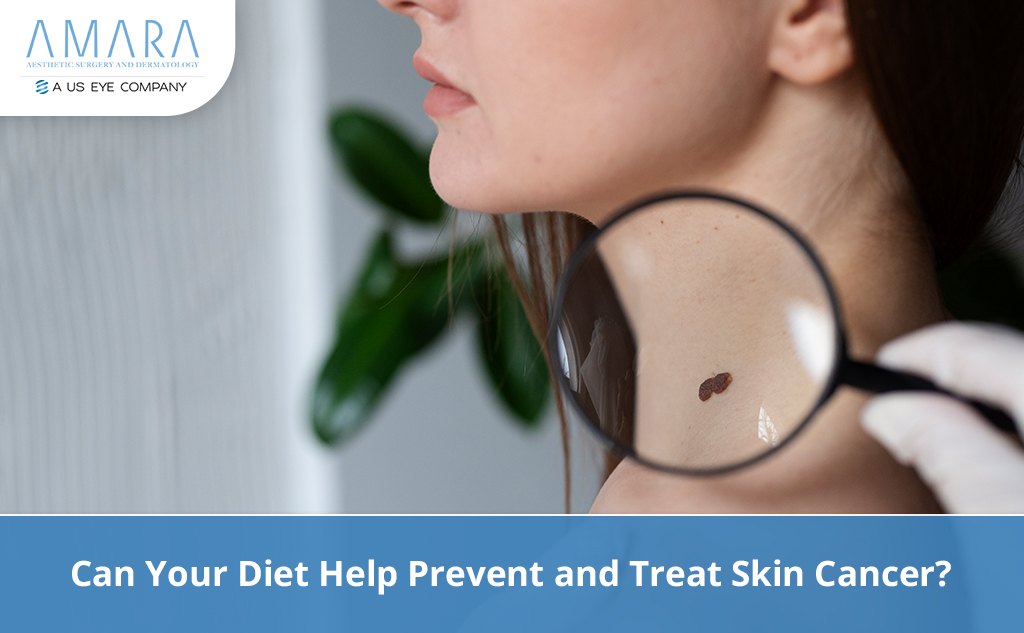
Reviewed by: Joshua M. Newman, M.D.
We know the basics of skin cancer prevention—sunscreen, hats, and shade. But did you know that what you eat might actually contribute to protecting your skin? Recent studies suggest that a diet rich in certain nutrients can help bolster your skin’s defenses against harmful UV rays and even help treat skin cancer.
The Journal of Investigative Dermatology suggests that UV exposure depletes antioxidants in the body, making it more susceptible to damage. Foods high in antioxidants can help replenish these vital compounds and protect your skin cells from damage. Also, omega-3 fatty acids have been shown to relieve inflammation and may inhibit the growth of skin cancer cells.
While our body is capable of producing essential nutrients, it cannot synthesize antioxidants. The best way to obtain these is through a balanced diet. Read more to learn about the link between nutrition and skin cancer prevention with AMARA.
Table of Contents
5 Vitamins For Skin Cancer Prevention
Research has identified several key nutrients that may help reduce the risk of skin cancer, particularly melanoma, and the foods associated with them. Here’s a summary of the impact of nutrition on skin cancer:
- Vitamins A, C, and E: These antioxidant vitamins are critical in neutralizing free radicals, which can contribute to skin damage. Vitamin A supports skin cell production; Vitamin C is vital for collagen synthesis and protects against UV-induced damage; and Vitamin E helps skin repair and hydration.
- Selenium: An essential trace mineral, selenium can help counteract oxidative stress. Selenium plays a role in the function of antioxidant enzymes that protect skin cells from damage.
- Omega-3 Fatty Acids: These fatty acids help reduce inflammation and may decrease the proliferation of skin cancer cells.
- Caffeine: Caffeine has shown potential in laboratory studies for inhibiting melanoma cell growth and enhancing the efficacy of other skin cancer treatments.
- Flavonoids: Flavonoids exhibit antioxidant properties that can protect skin cells from oxidative stress and UV damage.
Nutrient-Rich Foods To Eat
Practicing skin cancer prevention through diet changes can help reduce the risk of skin cancer. Here are some foods associated with the key nutrients mentioned:
- Vitamin A: Carrots, sweet potatoes, spinach, and kale.
- Vitamin C: Oranges, strawberries, kiwi, bell peppers, and broccoli.
- Vitamin E: Nuts (especially almonds), seeds, avocados, and green leafy vegetables.
- Selenium: Brazil nuts, tuna, sardines, and whole grains.
- Omega-3 Fatty Acids: Fatty fish (such as salmon and mackerel), flaxseeds, walnuts, and chia seeds.
- Caffeine: Coffee and tea (especially green tea).
- Flavonoids: Berries, apples, citrus fruits, onions, and dark chocolate.

Recommended Supplements
While doctors prefer you get your nutrients from foods rather than supplements in most cases, two antioxidant supplements have recently produced impressive evidence as skin cancer fighters:
- Nicotinamide (Niacinamide): A form of vitamin B3 that has been shown to reduce the rate of new skin precancers and certain types of skin cancers in high-risk patients. It helps replenish energy supplies in the skin depleted by UV damage and may enhance the immune system’s ability to repair that damage.
- Polypodium leucotomos: An antioxidant derived from a fern, noted for preventing UV-induced toxicity and DNA damage. This supplement has been shown to suppress sunburn and enhance the skin’s ability to withstand sun exposure while providing anti-inflammatory benefits.
It’s important to remember that while these supplements may enhance the effects of your sunscreen, they should not replace traditional sun protection methods.
A Holistic Approach to Skin Health
Incorporating these nutritious foods into your diet can promote overall health and significantly reduce the risk of developing skin cancer. While dietary changes alone cannot guarantee skin cancer prevention, they are valuable to maintaining skin health. A combination of protective measures such as using sunblock, wearing protective clothing, and following a diet rich in antioxidants can create a powerful strategy to keep your skin safe and healthy. If the cancer escalates, there are non-surgical options available.
Consulting With the Skin Care Experts at AMARA
If you have concerns regarding skin health or need advice on dietary changes that can support skin cancer prevention, consulting with professionals like Joshua M. Newman, M.D., and Shannon Bednarz, PA-C, can provide tailored guidance to help you achieve your health goals. Call today for an appointment in Venice, FL, USA.—we’re ready to serve!
**While we strive to provide accurate and up-to-date information, medical knowledge is constantly evolving, and new research may change the nature of certain conditions. Please remember to consult with a healthcare professional or dermatologist for proper diagnosis, skin cancer treatment, and guidance regarding nutrition for skin cancer prevention.**
Frequently Asked Questions
Diet can support overall skin health and may complement medical care, but it cannot completely treat existing skin cancer. An existing cancer requires a combination of treatments including surgery, topical therapies, and other dermatological recommended options. If you have been diagnosed with skin cancer, you must visit Amara in Venice, Florida, to get the best treatment.
Nutrients that may help the skin defend against UV-related stress include antioxidant vitamins A, C, and E, plus selenium, omega-3 fatty acids, and flavonoids. They support inflammation control and help neutralize oxidative damage. Consistent sunscreen and sun habits still matter, especially in sunny climates.
No single vitamin can “stop” skin cancer. However, nicotinamide (vitamin B3) has evidence for reducing some new precancers and certain skin cancers in high-risk people when used under medical guidance. A dermatologist at AMARA in Venice, Florida, can tell you whether it’s appropriate for your risk level.
There’s no universal “skin cancer diet,” but many experts suggest limiting:
- Ultra-processed foods as they are high in sugar/refined carbs
- Processed meats and frequent charred/overcooked meats
- Excess alcohol
For personalized guidance, contact the expert team at Amara to ensure your nutrition aligns well with your health condition and treatment plan.

